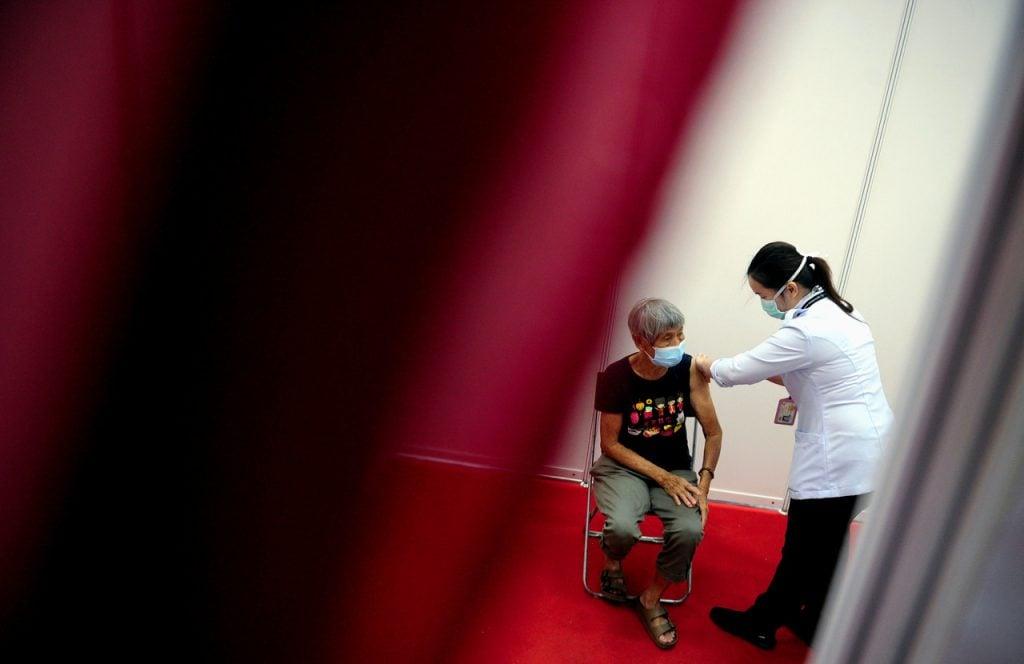Are we still in two minds about mandatory Covid-19 jabs?
Though caution may still be required on mandatory Covid-19 vaccination, it cannot be regarded as disproportionate to require mandatory vaccination 'in the name of social solidarity'.
Just In
I refer to Leonard Yeoh and Pua Jun Wen’s “Mandatory Covid-19 vaccination?”
It looks like we are still in two minds about mandatory Covid-19 vaccination. Yeoh and Pua rightly explain that mandatory Covid-19 – or any vaccination for that matter – interferes with individual liberty and autonomy. But it can be justified when it prevents serious harm to others in the community.
Article 5(1) of the Federal Constitution guarantees personal liberty and autonomy. This guarantee, however, is not absolute as one’s personal liberty may be interfered with “in accordance with law”.
As such the government can make vaccination mandatory pursuant to Sections 11(1) and 11(3)(a) of the Prevention and Control of Infectious Diseases Act 1988 (Act 342). These provisions provide that it shall be lawful for any authorised officer to direct any person living in an infected local area to subject himself to treatment or immunisation.
Perhaps a look beyond our shores on the jurisprudence on mandatory vaccination can be enlightening, if not persuasive.
In Solomakhin v Ukraine, the European Court of Human Rights (the ECtHR) held that mandatory vaccination interferes with a person’s right to integrity protected under Article 8 of the European Convention on Human Rights (ECHR). However, on the facts and law, the interference was clearly provided by law (Ukraine’s Health Care and Control of Diseases Act 1994) and pursued the legitimate aim of the protection of health. The ECtHR concluded that such interference may be justified if considered a “necessity to control the spreading of infectious diseases”.
Interestingly though, the ECtHR left open the question whether the interference was necessary in a democratic society. Decided in March 2012, the question left by the ECtHR remained unexamined until two months ago in April 2021.
In Vavřička and Others v the Czech Republic, in a widely-anticipated decision the ECtHR’s Grand Chamber took on the occasion to provide more detailed discussion of the implications of the ECHR on mandatory vaccination in the context of childhood vaccines. The case concerned domestic legislation requiring children to undergo a series of vaccinations. The policy does not physically enforce vaccination but parents who refuse to let their children be vaccinated can be fined and unvaccinated children excluded from pre-school. The Grand Chamber held, by 16 votes to one, that the policy was compatible with the ECHR.
Decisively, the Grand Chamber also ruled that compulsory vaccination can be considered “necessary in a democratic”.
The Grand Chamber is the apex chamber of the ECtHR. It hears a small, select number of cases that have been either referred to it (on appeal from the decision of the lower chamber ECtHR) or relinquished by a lower chamber, usually when the case involves an important or novel question.
In a commentary to the decision, Dr Anna Nilsson of the Global Campus of Human Rights, which is an interdisciplinary centre of excellence supported by the European Union, writes as follow:
“This [decision] shows that states enjoy a wide margin of appreciation in determining vaccination policies, as long as vaccination is not forcibly imposed. States have a positive obligation to protect the health and life of their residents, including those particularly vulnerable to certain diseases and those who cannot have specific vaccines for medical reasons. Low vaccination rates increase risk of outbreaks of serious diseases which may severely impact individuals’ health and society in general. Thus, the [ECtHR] held that the mere possibility that a system based on recommendations might be less effective than a mandatory one constitutes a strong reason to permit mandatory vaccination policies under the ECHR. The fact that most European states maintain high vaccination rates without mandatory policies did not deter the court from this conclusion.”
Now, Professor Julian Savulescu of the Faculty of Philosophy, University of Oxford argues that mandatory vaccination, including for Covid-19, can be ethically justified if the threat to public health is grave, the confidence in safety and effectiveness is high, the expected utility of mandatory vaccination is greater than the alternatives, and the penalties or costs for non-compliance are proportionate.
Is the country not in a state of emergency because there exists a grave emergency (emphasis added) whereby “the security, economic life and public order in the federation are threatened arising from the epidemic of an infectious disease namely Coronavirus Disease 2019 (Covid-19)”?
Though caution may still be required on mandatory Covid-19 vaccination, as the ECtHR’s Grand Chamber said, it cannot be regarded as disproportionate to require mandatory vaccination “in the name of social solidarity”.
So, are we still in two minds about it?
The views expressed in this article are those of the author(s) and do not necessarily reflect the position of MalaysiaNow.
Subscribe to our newsletter
To be updated with all the latest news and analyses daily.
